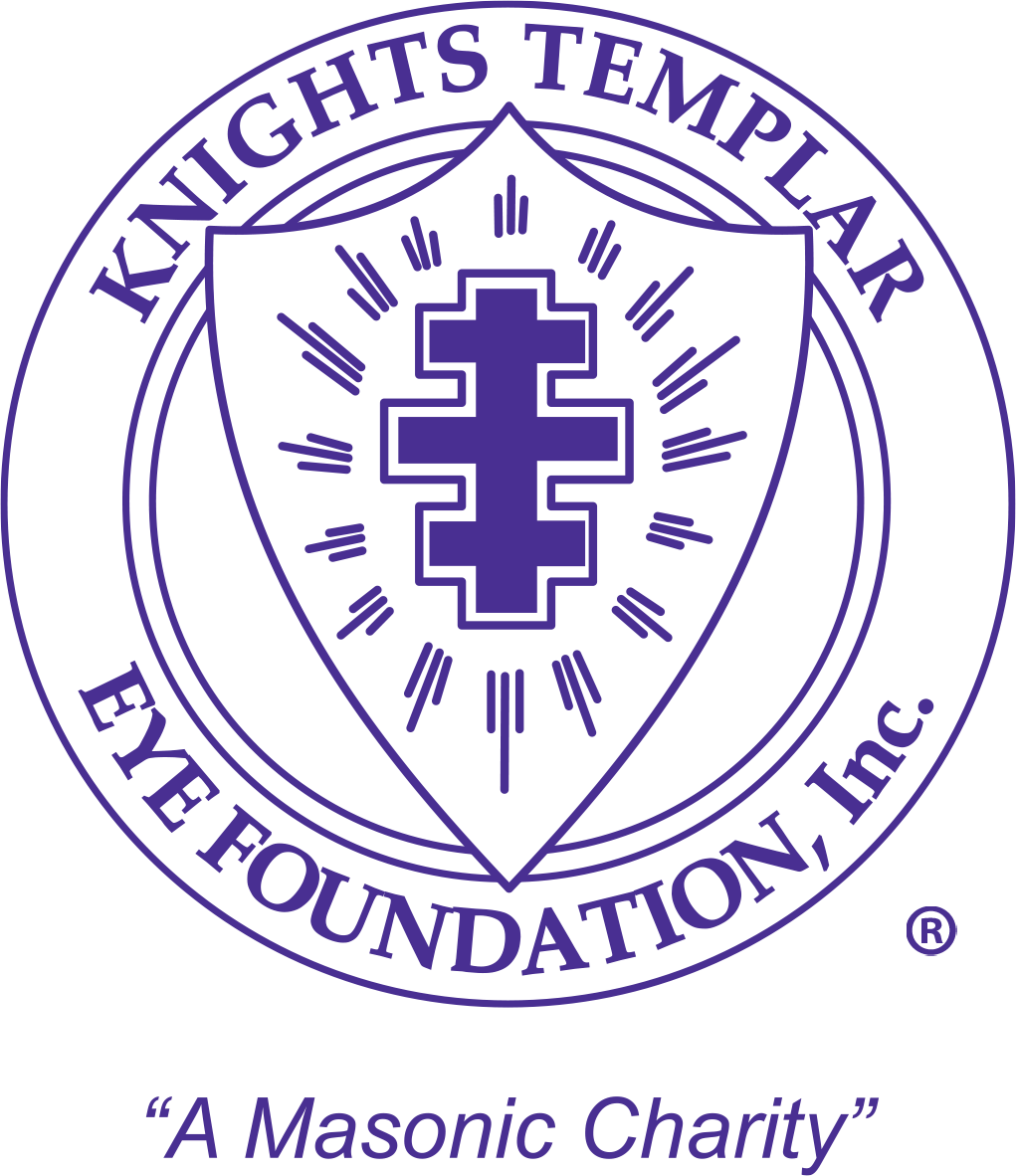Endowments
The Knights Templar Eye Foundation has established endowed professorship programs and research endowments at leading research universities and teaching hospitals.



From the President
We have learned over past decades that our efforts in funding pediatric ophthalmology research have been the primary reason that we have had fewer and fewer children with strabismus (crossed eyes) to treat. Our research dollars have helped develop new, non-surgical treatments for this problem, and additional research and endowment programs are all being funded as well by your faithful support.
Every donation will assist in making a tremendous difference in the lives of children by helping the Foundation to fulfill its mission.
Sir Knights, aside from his salvation, there is no greater gift for man on this earth than the gift of sight. Through your generous contributions, lives are being changed; research is being funded, which is allowing mankind to lead more fruitful and blessed lives.
The Knights Templar Eye Foundation, Inc. is committed to support research that can help launch the careers of clinical and basic researchers focused on the prevention and cure of potentially blinding diseases in infants and children. Grants supported by the Knights Templar Eye Foundation, Inc. are awarded to impact the care of infants, children, and adults. Clinical and basic research on conditions that may be potentially preventable or correctable such as amblyopia, cataract, glaucoma, optic nerve hypoplasia, nystagmus, retinopathy of prematurity, and hereditary diseases that occur at birth or within early childhood, such as retinoblastoma, is encouraged. Proposals for support of basic research on eye and visual system development also are welcome.
Each year the Knights Templar Eye Foundation, Inc., invites eligible investigators to submit applications for pediatric ophthalmology research grants:
Career-Starter Research Grants - up to $90,000 per grant. Applicants for these grants must be at the beginning of their academic careers and must have received M.D., Ph.D. or equivalent degree.
Competitive Renewal Grants - up to $90,000 per grant to extend the original grant project for one additional year when the data collected from the original grant is compelling enough to apply.
Autosomal dominant optic atrophy and cataracts (ADOAC) or 3-Methylglutaconic aciduria type III (MGA3), also knownas Costeff syndrome, are caused by mutations in the OPA3 gene. Affected patients present with an early onset complex blinding disease, typically before the age of five for MGA3 and around 10-year-old for ADOAC, characterized by optic atrophy along with other symptoms such as peripheral neuropathy, cognitive impairment, and dysmotility. There currently is no treatment for these devastating diseases. Lima de Carvalho’s long-term goal is to work on both gene therapy and drug screening to prevent blindness and reduce morbidity in affected infants.
By understanding the molecular details of cone development in the TS organoid, Dr. Kandoi will create a roadmap for generating cone-rich human retinal organoids. These mini-retinas-in-a-dish can be versatile tool in the treatment of LCA, EOSRD, and other retinal dystrophies.
Dr. Kabra’s approach will answer several important questions: 1) Can genome editors correct gene mutations precisely? 2) Does gene correction restore the channel function? 3) Is biallelic editing necessary for the channel function? 4) Can PRs be efficiently targeted intravitreally? 5) What would be the long-term off-target effect of CRISPR AAVs?
The American Academy of Ophthalmology (AAO) 2025 Annual Meeting took place this past October 18-20, 2025, in Orlando, Florida where during the meeting they recognized Christie L. Morse, MD, and the Knights Templar Eye Foundation for their leadership and commitment to improving vision.
Every year, thousands of newborn babies in sub-Saharan Africa face preventable blindness from ROP, a condition that develops when premature infants receive unregulated oxygen in neonatal intensive care units. While developed countries have virtually eliminated ROP blindness through proper screening and treatment, many African nations lack the necessary infrastructure and trained personnel.
Dr. Hannan aims to understand the workings of a particular gene that causes pediatric glaucoma at a deeper genetic level, which will open up new therapeutic avenues.
Generous gift from the Knights Templar Eye Foundation, Inc. allows innovative screening program to serve more Americans in need of eye care.
It is 30 years since the Knights Templar Eye Foundation, Inc. (KTEF) joined the American Academy of Ophthalmology in a journey to improve the vision care of patients both across the United States and around the globe, said Academy CEO Stephen D. McLeod, MD. “At the Academy’s 2025 annual meeting we honor its steadfast commitment to supporting the care so many patients need today, and its foresight in supporting innovative educational programs that help the patients of tomorrow.”
Dr. Vrathasha hopes to demonstrate through her studies in iPSC-RGCs from LHON patients and the LHON mouse model that mitochondrial transplantation is a viable therapy and can be used as a mitigating treatment for ChO-LHON before the onset of vision loss.
Dr. Cao’s objective of her study is to further understand the role and mechanisms of HMGB1 in OIR, in order to develop treatments targeting HMGB1 in retinopathy of prematurity.
A message from the John S. Penn Ph.D. former chair of the Knights Templar Eye Foundation, Inc. Scientific Advisory Committee.
The original mission of the Foundation was "to provide assistance to those who face loss of sight due to the need for surgical treatment without regard to race, color, creed, age, sex or national origin provided they are unable to pay or receive adequate assistance from current government agencies or similar sources and to provide funds for research in curing diseases of the eye."
On December 31, 2010, the Knights Templar Eye Foundation, Inc., by direction of the board, shifted the Foundation's focus and adopted a new mission statement "to improve vision through research, education, and supporting access to care." The Foundation now only participates in direct patient care through the Seniors Eye Care Program in partnership with EyeCare America and the Foundation of the American Academy of Ophthalmology. With this change, the Foundation is benefitting untold millions in generations to come through grants that support research and education.
Since its inception, the Foundation has expended over $181 million on research, patient care, and education.
Research grants totaling in excess of $41 million have been awarded to researchers working in the fields of pediatric ophthalmology and ophthalmic genetics.
All endowed professorships and research endowments are awarded $2 million, matched dollar for dollar by the institution.
The Knights Templar Eye Foundation has established endowed professorship programs and research endowments at leading research universities and teaching hospitals.
Funds for the operation of the Knights Templar Eye Foundation are obtained from an annual assessment of each Knight Templar, contributions made by Masons from throughout the Masonic Family, fund-raising activities, memorials, wills and bequests, and donations from endowment funds or similar sources. See how you can help support us below.
Click below to see the various ways you can donate to the Knights Templar Eye Foundation right now.
There are creative ways in which the Knights Templar Eye Foundation, you and your loved ones all benefit at the same time.
In addition to donations, we also offer a variety of Knights Templar Eye Foundation Items that you can receive for a donation.